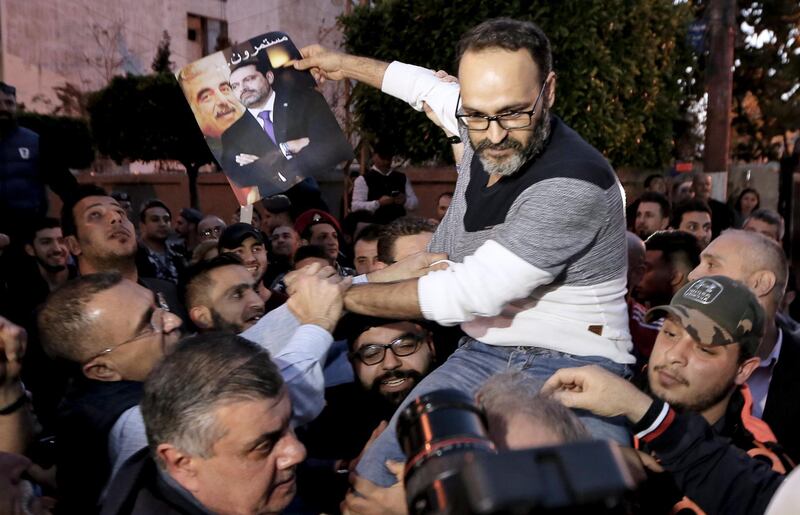Lebanese actor Ziad Itani indicted on charges of spying for Israel has been released by a military judge and an arrest warrant was issued for the officer who built the case against him.
Itani was detained in November on charges of “collaborating and communicating” with Israel, but his claims of innocence now appear vindicated.
An arrest warrant was issued for Suzan Hajj Hobeiche, the former head of a Lebanese security unit fighting cybercrime, who was detained for questioning earlier this month over suspicions she had enlisted a hacker to fabricate conversations between the actor and an Israeli woman.
It was reported that Itani confessed to spying, though he maintains that confession was given after he was tortured.
He said that Ms Hajj Hobeiche conspired to frame him after she lost her job in October for "favouriting" a controversial joke on Twitter about women driving in Saudi Arabia shortly after it was announced women in the kingdom would be given that right.
"Women in Saudi Arabia were only allowed to drive if the car was booby-trapped,” read the joke. Ms Hajj Hobeiche deleted her tweet shortly after, but Itani had taken a screenshot of it, and she allegedly blamed him for drawing attention to the fact she had favourited the tweet.
Itani received a hero’s welcome from Lebanese Prime Minister Saad Hariri on Tuesday after his release and was later greeted by hundreds of supporters in Beirut’s Tariq Al Jadideh neighbourhood, where the actor grew up.
The meeting with Mr Hariri was broadcast live.
“What happened today is that justice prevailed,” Mr Hariri said. “There is no doubt that there was injustice against you, but the state showed … that achieving justice is possible in this country.”
Before becoming an actor, Itani worked as a journalist with Lebanon's Al Mayadeen television channel and with various regional newspapers. He has gained popularity in recent years for a series of comedy plays about Beirut.
One of his most popular works has been "Beirut Tariq Al Jdideh”, a play named after the neighbourhood he grew up in.
Lebanese Interior Minister Nohad Machnouk also visited Itani at his family’s home there Tuesday, calling the actor “brave”.
Lebanon remains at war with Israel and there is a law – though selectively enforced – against contact with Israeli citizens.
Itani had allegedly confessed to having been "tasked to monitor a group of high-level political figures" and their associates, but the actor and people close to him have said the "confession" was extracted under duress, though the authorities have denied the accusation.
The case highlighted concerns human rights groups have raised about justice in Lebanon.
“As a civilian, he should not be in front of a military court,” said Bassam Khawaja, a researcher for Human Rights Watch.
HRW has previously documented allegations of torture by Lebanon’s security forces, an issue Mr Khawaja said the government has yet to address.
“If the allegations are true, and if he was framed, this is a massive miscarriage of justice, and we’re most concerned about the allegations he was tortured in custody,” Mr Khawaja said. “There needs to be a full investigation about why he was arrested in the first place.”
Itani broke down in tears as he said he had been "subjected to the greatest injustice" in Lebanon's history.
"For a moment, Lebanon had almost come back to the eras of oppression,” Itani said, thanking those in government and the judiciary who had helped bring his case to its current resolution.
“If it weren't for [their efforts] I would have lost faith in the country."





